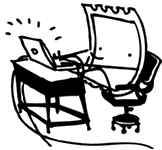Back in June, my manager asked me to write about my experience attending write/speak/code. write/speak/code is an immersive conference that aims to give women in tech a voice by giving them confidence, motivation, and actionable goals. Ironically, I felt hesitant to write this blog post–worrying I wouldn’t have enough to say–until I realized this insecurity was exactly what the conference was trying to cure.
write/speak/code was unlike any conference I have attended before. The entire group of attendees, volunteers, and staff fit in one large classroom. Each day of the conference had a project-driven agenda, all coming together under the theme of empowering women and helping them find their voice.
write >> draft an op-ed column
The first day was focused on voicing your opinions with the written word - specifically through op-ed columns. As a technologist, my initial reaction was a bit incredulous, but by the time The OpEd Project finished their program I was sold.
They started by presenting us with numbers: 10-20% of opinion pieces in traditional media and 33% in new media are authored by women. This is roughly on par with submissions, which is why they believe that increasing submissions is an effective and actionable way to increase contributions of women in the media.
To explain why that matters, they drove home their point with the successes of previous attendees. It turns out that writing an op-ed is one of the most accessible strategies for anyone wanting to increase their visibility. A successful op-ed in a local newsource or a popular blog could get you landed on HuffPo or the New York Times. TV news networks use published op-ed writers to recruit news commentators.
If you’re a woman or anyone who just wants to be heard, definitely go check out their website for more information about this wonderful organization.
speak >> as a group, write a talk proposal and present it
The thought of speaking in public puts chills down my spine, and I know I’m not alone. The Speak day of the conference was the most stressful day for many of us, but likely the most valuable. One day was definitely not enough time to become comfortable but it was a valuable chance to dip our toes in and get feedback. In fact, speaker after speaker told us “You don’t get less scared. You have to practice, be confident and your material, and just do it.”
I have a bit of experience with this myself. I once decided I wanted to conquer my fear of public speaking by giving a talk at Ignite! Seattle. The experience was a near disaster thanks to a slip-up with my slides but coming out the other end a survivor did wonders for my confidence. Even with the serious derailment of my talk I got tons of positive feedback and earned serious tech community rep. Which is all just to say that no matter how scared you are, do it. The rewards are worth it.
code >> contribute to an open source project
I was pretty nervous about the Code day. I consider myself a highly technical person but my coding skills are underdeveloped. As a QA Engineer at Paperless Post, I’m fortunate enough to work with an extremely talented test automation engineer so I can focus on finding bugs.
Open-source participation by women is low, and some of that is credited to women feeling like they don’t have the skill level to be of help. I was quickly assured that any contribution can be valuable, with or without a code submission. Encouraged, I decided to try my hand at We The People, the White House’s petition site. By the end of the day, I had managed to submit three bug reports and officially became an open source contributor.
takeaway
The ladies of write/speak/code deserve a lot of credit for putting together such a constructive, immersive conference. Self-censorship is a hard habit to break, but the personal implications are huge and I’m grateful for any encouragement to put myself out there. Hopefully, this blog post is just the beginning!

 Dev Blog
Dev Blog